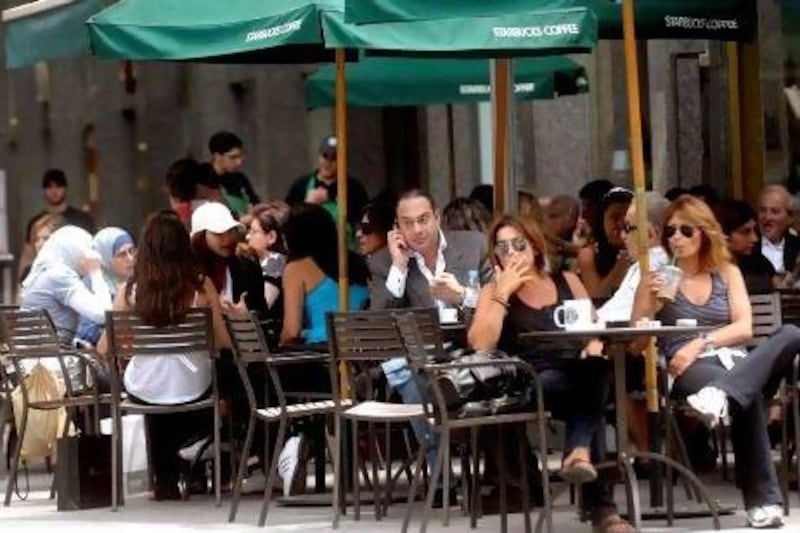I am going to go out on a limb and say I am convinced the majority of Lebanese would take the United States over Iran any day.
Even Lebanon's Shia community, perceived as Tehran's main support base, has shown it can embrace the American way of life with gusto.
Go to Dearborn, Michigan - where about 38,000 Arabs, mainly Lebanese Shiites, have lived for generations - and you will see a shining example of cultural integration with no loss of national or religious identity. I may be wrong but I know of no similar community in the Islamic Republic. I will concede that politically, the Americans often can't put a foot right and are held up by many as being responsible for the woes of the region but we Lebanese love how they live.
I mention this because once again there have been bouts of America-bashing across Lebanon, encouraged this time by the Iranian-backed Hizbollah in the wake of that dreadful film, Innocence of Muslims.
At the same time, Iran, which supposedly funnels US$500 million (Dh1.83 billion) to Hizbollah and further undisclosed amounts in other aid to community projects every year, has been indulging in some rare muscle-flexing, boasting it can rely on its proxy to enter the fray should there be a conflict with Israel and confirming the presence of military advisers in Lebanon. Many see it as Iran's way of further feathering its Lebanese nest just in case Syria can no longer be counted on as a strategic ally.
And yet I will wager the same people who marched for Hizbollah to protest against Innocence of Muslims will go home and happily order any number of American fast foods or fizzy drinks and sit down and watch US sitcoms or movies. They will buy American consumer goods and, at the merest hint of a Green Card, they will be on the plane out of Beirut faster than you can say Star Spangled Banner. I don't see any Iranian-built Iran-Khodros or Saipa cruising through the streets of Beirut, while the much-hyped Zam Zam Cola has failed to compete with Coke or Pepsi. That Iranian men and women also spend a bundle on cosmetic surgery may be the only thing we have in common.
American influence in Lebanon, on the other hand, began in the 19th century and is still going strong. Apart from about $190m in official aid to all sectors including the Lebanese army, the United Sates looms large in the Lebanese cultural consciousness. The American University of Beirut, the American University Hospital, the American Community School and the International College are among the finest educational and health institutions in the country, symbols of deep ties between the two countries.
Last week, the pro-Hizbollah Lebanese newspaper Al Akhbar outed a number of Shiite activists and politicians who it said were US-friendly. The implications are as sinister as they are dangerous. The rest of the Lebanese can hang out with the Americans as much as they want but somehow the Shia can't and getting chummy with the US is tantamount to treason.
But it all smacks of desperation. Yes, Iran has offered developmental assistance and infrastructure support. It helped rebuild the southern suburbs of Beirut that were destroyed in the 2006 war. But an offer of a $30m hydroelectric dam in the Christian municipality of Tannourine in north Lebanon was met with a lukewarm reaction. The locals were willing to take the money but blanched at the prospect of Iranian engineers moving en masse into the area.
It was a telling rejection and one that demonstrated Iranian largesse will probably never catch on simply because such assistance comes at a price. The Lebanese have already seen what Iran has achieved with Hizbollah and know deep down its wider interest is one ultimately based on conflict rather than growth.
Michael Karam is a writer based in Beirut





